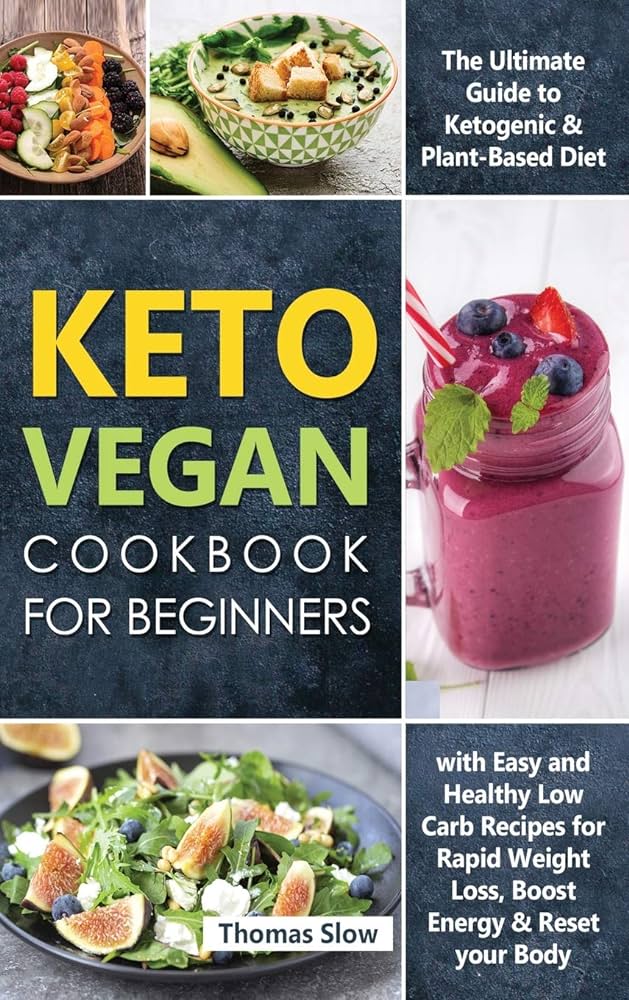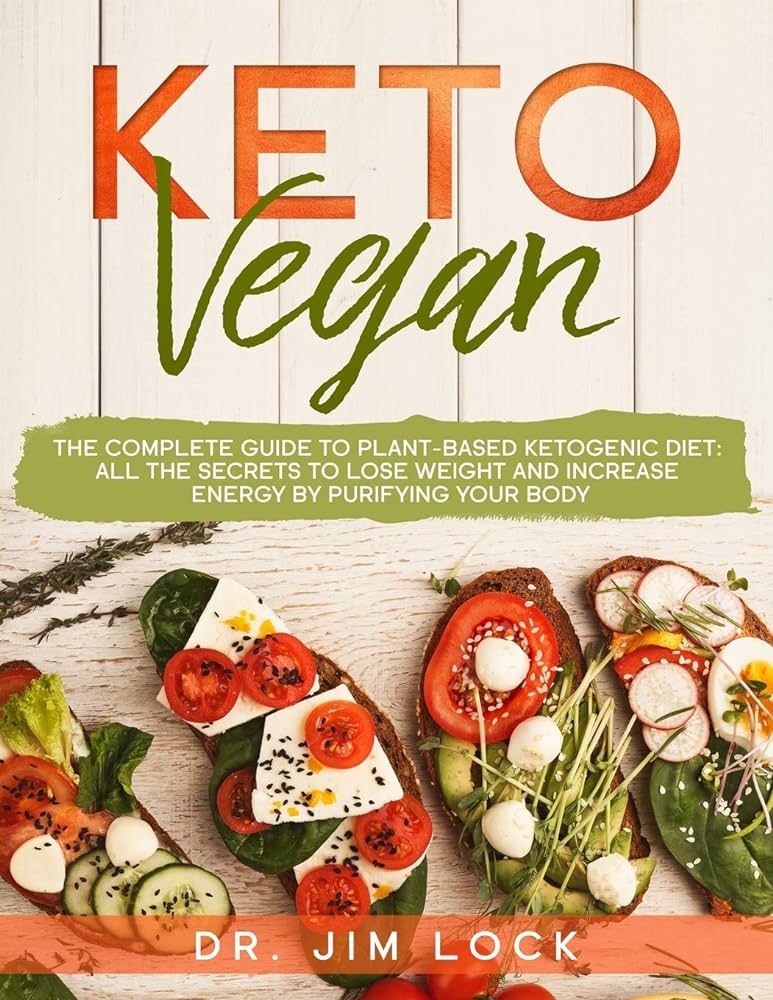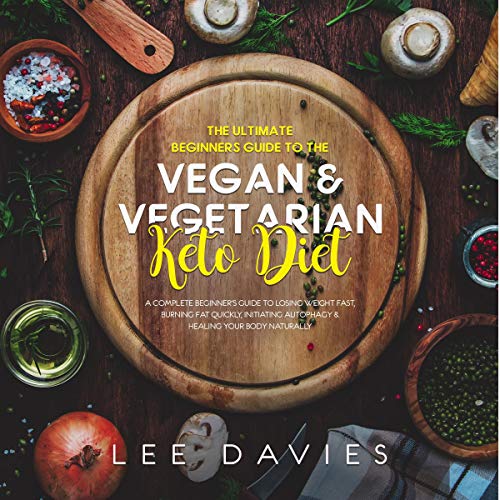
The Ultimate Guide to the Vegan Keto Diet
Are you considering hopping on the vegan keto bandwagon? If so, you’re in the right place! The vegan keto diet is a low-carb, high-fat, moderate-protein diet that excludes all animal-based foods. Not only has it been shown to result in weight loss, but it can also reduce the risk of heart disease and diabetes. By avoiding animal products, high-carbohydrate foods, and processed foods, and focusing on coconut products, oils, nuts and seeds, non-starchy vegetables, and vegan protein sources, you can embark on a delicious and nutritious vegan keto journey. However, be prepared for potential side effects and the need for supplementation, as well as the recommendation to consult a doctor or qualified health professional before starting this diet. Ready to learn more about this fascinating dietary approach? Let’s dive in!
Table of Contents
ToggleWhat is the Vegan Keto Diet?
Definition
The vegan keto diet is a unique dietary approach that combines the principles of a vegan diet with the macronutrient ratios of a ketogenic diet. As a vegan, you already follow a diet that excludes any animal-based products, including meat, dairy, and eggs. On the other hand, the ketogenic diet focuses on consuming high amounts of healthy fats while drastically reducing your carbohydrate intake. By merging these two dietary philosophies, the vegan keto diet aims to harness the health benefits of both.
Benefits of the vegan and ketogenic diets
Both the vegan and ketogenic diets have been the subject of numerous studies and have shown promising benefits for weight loss, heart health, and diabetes prevention.
When it comes to weight loss, both vegan and ketogenic diets have been shown to be effective. Vegan diets are typically high in fiber, which can help you feel full and satisfied, leading to reduced caloric intake. Additionally, the ketogenic diet’s emphasis on healthy fats and reduced carbohydrate intake can result in enhanced fat burning and weight loss.
In terms of heart health, both diets have been associated with reduced risk factors for cardiovascular disease. A vegan diet, due to its exclusion of animal products, is naturally low in saturated fats and cholesterol, both of which are known to contribute to heart disease. Meanwhile, the ketogenic diet has been shown to improve markers of heart health, such as reducing triglyceride levels and increasing levels of HDL (good) cholesterol.
Lastly, both diets have demonstrated potential benefits for managing or preventing diabetes. A vegan diet, rich in whole grains, fruits, vegetables, and legumes, can help control blood sugar levels and improve insulin sensitivity. Similarly, the ketogenic diet’s low-carbohydrate approach can lead to improved blood sugar control and reduced insulin resistance.
By adopting the vegan keto diet, you can potentially reap the benefits of both dietary approaches, promoting weight loss, heart health, and diabetes management.
Foods to Avoid on a Vegan Keto Diet
Animal products
As a vegan, you are already well versed in avoiding animal products in your diet. However, on the vegan keto diet, it becomes even more crucial to ensure that you diligently avoid any animal-based foods. This means no meat, poultry, fish, eggs, or dairy products.
High-carbohydrate foods
One of the key principles of the ketogenic diet is reducing carbohydrate intake to a minimum. To achieve and maintain a state of ketosis, where your body burns fat for fuel, it is important to limit your carbohydrate consumption to approximately 5-10% of your daily calorie intake. High-carbohydrate foods such as grains (including bread, pasta, and rice), potatoes, legumes, fruits (except for low-carb berries), and sugary foods should be avoided or consumed in very small quantities.
Processed foods
Processed foods, regardless of their vegan or non-vegan status, should be minimized or completely avoided on a vegan keto diet. These foods are often loaded with unhealthy fats, added sugars, preservatives, and other artificial additives. Instead, opt for whole, nutrient-dense foods to ensure you are getting the most out of your vegan keto diet.
Foods to Eat on a Vegan Keto Diet
Coconut products
Coconut is one of the staple foods on a vegan keto diet due to its high fat content and low carbohydrate content. Coconut oil, coconut milk, and coconut cream can all be used in various recipes to add flavor, creaminess, and healthy fats to your meals.
Oils
Healthy plant-based oils are a valuable addition to the vegan keto diet. Extra virgin olive oil, avocado oil, and MCT oil (derived from coconut oil) are excellent choices. These oils can be drizzled over salads, used for cooking, or incorporated into recipes for their associated health benefits.
Nuts and seeds
Nuts and seeds are rich in healthy fats, fiber, and essential nutrients. Almonds, walnuts, chia seeds, flaxseeds, and hemp seeds are particularly well-suited for a vegan keto diet. They can be enjoyed as a snack, added to smoothies, or used as toppings for salads and other dishes.
Non-starchy vegetables
Non-starchy vegetables are an important component of a vegan keto diet as they provide essential vitamins, minerals, and fiber without a significant impact on your carbohydrate intake. Leafy greens, broccoli, cauliflower, zucchini, and asparagus are great options to include in your meals.
Vegan protein sources
Since animal-based proteins are off-limits, it is essential to incorporate vegan protein sources into your diet. Plant-based protein options such as tofu, tempeh, seitan, and textured vegetable protein (TVP) can help maintain adequate protein intake on a vegan keto diet.
Avocados
Avocados are a true superstar food for the vegan keto diet. They are rich in heart-healthy fats, fiber, and various vitamins and minerals. Use avocados as a base for dips, in salads, or simply enjoy them as a satisfying snack.
Berries
Although most fruits are not keto-friendly due to their high carbohydrate content, berries, such as raspberries, blackberries, and strawberries, can be enjoyed in moderation on a vegan keto diet. They are relatively low in carbs and packed with antioxidants and fiber.
Condiments
Condiments can add flavor and variety to your meals without compromising your vegan keto diet. Opt for sugar-free options like mustard, hot sauce, apple cider vinegar, unsweetened nut butters, and sugar-free vegan mayo to enhance your dishes.
Transitioning to a Vegan Keto Diet
Possible side effects
As with any significant dietary change, transitioning to a vegan keto diet may come with certain side effects. Some individuals may experience symptoms such as fatigue, nausea, constipation, or dizziness during the initial adaptation period. These side effects, often referred to as the “keto flu,” are temporary and typically subside within a few days to a couple of weeks as your body adjusts to burning fat for fuel instead of carbohydrates.
Supplementation and nutrient needs
Given the restrictions of a vegan keto diet, it is important to pay close attention to your nutrient intake and consider supplementation if necessary. Key nutrients to monitor include omega-3 fatty acids, vitamin B12, vitamin D, and iodine. Consult with a healthcare professional or registered dietitian to determine if supplementation is necessary and to develop a personalized plan to meet your nutrient needs.
Is the Vegan Keto Diet Suitable for Everyone?
Consulting a doctor or qualified health professional
While the vegan keto diet can offer many potential health benefits, it may not be suitable for everyone. For certain individuals, such as those with certain medical conditions or nutrient deficiencies, the vegan keto diet may not be appropriate.
Before embarking on any major dietary change, it is recommended to consult with a doctor or qualified health professional. They can assess your individual health needs, provide guidance, and help determine if the vegan keto diet is a suitable choice for you.
In conclusion, the vegan keto diet is an innovative approach that combines the principles of a vegan diet with the macronutrient ratios of a ketogenic diet. By avoiding animal products and high-carbohydrate foods while prioritizing healthy fats, nuts and seeds, non-starchy vegetables, and plant-based proteins, you can potentially reap the benefits of weight loss, improved heart health, and better blood sugar control. However, it is important to transition to this diet with caution, as side effects can occur, and to consult with a healthcare professional to ensure it is appropriate for your unique needs. With proper planning and guidance, the vegan keto diet can be a rewarding and nourishing dietary choice.
Discover the benefits, foods to avoid and eat, and tips for transitioning to the vegan keto diet. Improve heart health, manage weight, and control blood sugar levels on this innovative dietary journey. Consult a healthcare professional before starting. Let’s dive in!





